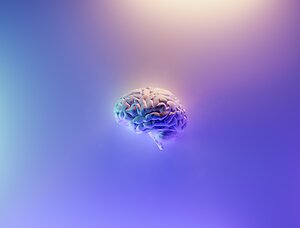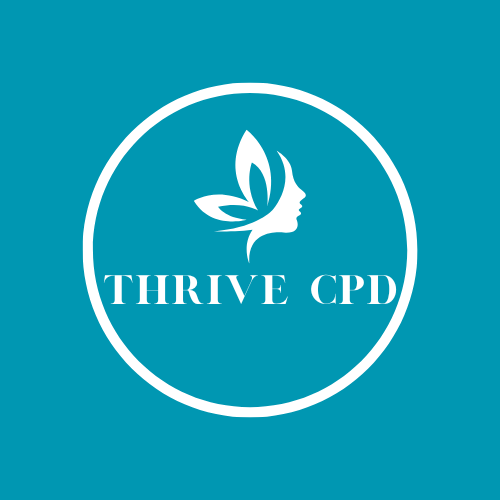Food for thought
Food is so prominent in most of our lives. Most social events revolve around food. Hard week at work? – “Let's get a takeaway at the weekend.” Kids giving you are hard time? - “It's wine-o'clock that will make things better”, and for the short-term food is a good strategy for changing your mood quickly. Food in particular junk food stimulates parts of the brain that like pleasure. It is the fastest mood changer we have. Social events are often marked by the foods associated with them. At Christmas people spend ages meticulously planning and talking about what’s for Christmas dinner. Is it even your birthday if there isn't a cake? Food is often at the heart of our celebrations and commiserations. It helps us to manage our feelings and is essential to our survival, and yet so many of us have difficulty managing food in a healthy balanced way. To not have a good relationship with food is to run into difficulties in many different social circumstances repeatedly.
Food choice is not about morality
Food is a basic human need and yet it is often wrongly linked to morality. Working as an eating disorder counsellor in Stamford and London, this fact still astonishes me. I have heard a lot of people talking negatively about themselves because of their food choices. Themes like “I was naughty I had a slice of cake at the weekend” or “I’ve been bad and ordered a side of chips”, or “me and my partner went for a cheeky meal at the weekend”. How many times have you heard people say “no thanks I don’t want [insert food item here] I am being good”. Morality is implied in the food choices we make. The association between food and morality is problematic as it fuels black and white thinking that food and people are either good or bad, when in reality it is much more nuanced than this. One popular slimming club even uses the word ‘sins’ as a point system for how much of something you can eat. The association of food and morality is a damaging one. You're not naughty because you had a slice of cake, you're not bad or cheeky because you had chips at the weekend. It is true that some foods will give you more nutrients than others and there is nothing wrong with fuelling your body and giving it what it needs to not only survive but thrive. The language we use around food matters, building up associations of food being something we need to feel guilty about is problematic especially for someone with an eating disorder.
Eating Disorders Awareness Week 2024
Eating Disorder Awareness Week runs from 26th February to the 3rd March 2024. It is thought that 1 in 50 people in the UK experience an eating disorder (BEAT 2023) and there is still a lot of work to do for people to understand what eating disorders are and how best to support people with them. The range of Eating and Feeding disorders is vast, from Anorexia, Bulimia, Binge Eating Disorder, Night Eating Syndrome, Type 1 Diabetes Disordered Eating, Rumination Syndrome, Pica, Orthorexia to Avoidant Restrictive Food Intake Disorder (ARFID) and the list goes on. Our relationship with food and control is a tricky one to navigate.
There needs to be elements of exploration, habit change, nutritional intervention and attention to the language we use if we as a society are going to change our relationship with food.
There needs to be elements of exploration, habit change, nutritional intervention and attention to the language we use if we as a society are going to change our relationship with food.
Disordered Eating
Most people that come to my practice have disordered eating. Disordered eating is different to an eating disorder in that it is not a diagnosable mental health issue. Disordered eaters eat in a way that is unusual or faddy. Eating minimal carbs, cutting out food groups entirely, or over exercising (yes there is such a thing!) are all signs of disordered eating. It can be tricky to spot because people hide restrictive eating behind the mask of watching what they eat and ‘being good’. Exercising continuously is recognised as being health conscious rather than harmful over exercising.
Change
Eating Disorders hide for a long time behind what people feel are positive behaviours and therefore can take a while for loved ones to spot. When someone starts hitting the gym more frequently it doesn't instantly ring alarm bells. If someone is cutting out food groups again it's not immediatley seen as a problem especially when so many diets have been popularised for doing just that.
I see people time and time again who are unhappy with their relationship with food and it is not hard to see why. A mixture of ideal body types heroine chic with amaciated features being the (old) new style on the block. Heroine Chic feeds into a rhetoric of restriction, hunger and misery = good.
This perpetuates more ill feeling for people who cannot (nor should they) fit into this 'ideal'
I see people time and time again who are unhappy with their relationship with food and it is not hard to see why. A mixture of ideal body types heroine chic with amaciated features being the (old) new style on the block. Heroine Chic feeds into a rhetoric of restriction, hunger and misery = good.
This perpetuates more ill feeling for people who cannot (nor should they) fit into this 'ideal'
Balance
In reality strive for balance. Eating something shouldn't make you feel guilty or bad. Nutritious density requires a range of macro food groups to be eaten, this includes Protein, Fats, and Carbohydrates. Eating these nutrients in a balanced way is what we should be striving for as cutting out food groups can lead the body to become dysregulated.
Self Certified Chocoholic?
It is National Chocolate week this week in the UK and The Great British Bake Off followed suit by bringing us some signature chocolate brownies, technical challenge and a showstopper stacked chocolate cake. I for one was not impressed with the baking this week or in fact this season but I am a harsh critic. I am always acutely aware of how TV can be triggering for some people with eating disorders or disordered eating. Chocolate is a theme that comes up a lot in food related therapy as many people feel as though they are dependent on chocolate for many different reasons. As we are likely to be bombarded with more and more images of chocolate this week there is no better time to provide guidance to people who may need that little extra support.
Many people think that they are addicted to chocolate when in fact they have a dependency on it or like it a lot. Chocolate like most things that contain sugar stimulates your opioid system. Your brain is one of the biggest users of glucose (sugar) in the body. Over time sensors in your brain become down regulated or desensitized to sugar and therefore it takes more and more of the same substance (sugar) to feel the same ‘hit’ or level of happiness after something sweet. It is this process that happens within the body that has people thinking they are addicted to chocolate as they seem to be eating more and more of it. If you’re concerned about the amount of Chocolate, you are craving or eating there are things you can do to break the cycle and curb your cravings.
Low Battery
We crave sugar for many reasons one of which is low blood sugar which translates to low energy. The brain relies on glucose to function properly. When our blood sugar drops rapidly our brain releases chemicals that has us craving something sweet like chocolate.
Deficiencies
Poor nutrition, through not eating a range of foods can lead to us being deficient in magnesium and chromium which can sometimes lead to sugar cravings.
High Stress
Stress can have a huge impact on the number of sweet things we eat.
Serotonin Imbalance
Serotonin imbalances may also be leading you to crave something sweet. Sometimes people with depression try to eat their way out of their depressed state as food is mood changer especially sweet things that spike your opioid system which is your happiness and reward system.
Lack of Sleep
When excess sugar is consumed the body converts sugar into glycogen, when these stocks are full the body converts excess sugar into adipose tissue. Adipose tissue is excess fat that normally hangs around the midriff and is accurate at determining health risk factors.
When blood sugar levels rise too quickly our body produces too much insulin which can lead to insulin resistance or prediabetes so how do I curb my cravings for chocolate I hear you ask?
Curb the Craving
Eat
By eating a range of foods that include chromium and magnesium, mainly whole grains and leafy greens you are giving your body what it needs to beat cravings. The nutrients within these foods increase cell sensitivity to maximise the amount of sugar your body can metabolise and burn off.
Balance
Balance out your blood sugar levels by eating regular meals that contain protein, good quality carbs and good fats to help maintain satiety and blood sugar levels. Cinnamon, Cardamom and Nutmeg have been shown to help people with type 2 diabetes gain better control over their blood sugar level. Adding healthy fats like Avocado, coconut oil, olive oil, salmon, nuts and seeds to your diet can help keep your blood sugar levels stable which can reduce the risk of insulin resistance developing.
Relax
High stress and cortisol levels can lead to sugar craving, manage stress to manage cravings, move for fun, exercise, take a bath, try a breathing exercise it all helps.
Stimulus control
It is much easier to say no once in the supermarket to a bar of chocolate than every single day that it is sat in your cupboard! Practice not rationalising having chocolate in the house ‘for someone else’ chances are you will be the one that ends up eating it and sending your blood sugars on a rollercoaster ride which will have you craving more…. sugar.
Sleep Right
Get plenty of sleep. Lack of energy is one of the reasons people go for chocolate in the first place. Pay attention to your environment, keep your bedroom clutter free and at the right temperature, minimise light and noise so that you can get good quality sleep.
Don’t Skip
Try not to skip meals this will force your blood sugar to drop and will have you craving something chocolatey. Stick to a regular schedule of eating breakfast lunch and dinner minimum.
Swap it out
Make a swap dark chocolate is a sensible swap for milk chocolate products. Dark chocolate is classed as a superfood it is packed with antioxidants has a much lower sugar content and can assist heart health.
I’m a firm believer that most things should be present in your diet and that cutting out entire foods or food groups can be more detrimental to your physical and mental health. It is much better to learn how to moderate and make sensible swaps to support your health.
Many people think that they are addicted to chocolate when in fact they have a dependency on it or like it a lot. Chocolate like most things that contain sugar stimulates your opioid system. Your brain is one of the biggest users of glucose (sugar) in the body. Over time sensors in your brain become down regulated or desensitized to sugar and therefore it takes more and more of the same substance (sugar) to feel the same ‘hit’ or level of happiness after something sweet. It is this process that happens within the body that has people thinking they are addicted to chocolate as they seem to be eating more and more of it. If you’re concerned about the amount of Chocolate, you are craving or eating there are things you can do to break the cycle and curb your cravings.
Low Battery
We crave sugar for many reasons one of which is low blood sugar which translates to low energy. The brain relies on glucose to function properly. When our blood sugar drops rapidly our brain releases chemicals that has us craving something sweet like chocolate.
Deficiencies
Poor nutrition, through not eating a range of foods can lead to us being deficient in magnesium and chromium which can sometimes lead to sugar cravings.
High Stress
Stress can have a huge impact on the number of sweet things we eat.
Serotonin Imbalance
Serotonin imbalances may also be leading you to crave something sweet. Sometimes people with depression try to eat their way out of their depressed state as food is mood changer especially sweet things that spike your opioid system which is your happiness and reward system.
Lack of Sleep
When excess sugar is consumed the body converts sugar into glycogen, when these stocks are full the body converts excess sugar into adipose tissue. Adipose tissue is excess fat that normally hangs around the midriff and is accurate at determining health risk factors.
When blood sugar levels rise too quickly our body produces too much insulin which can lead to insulin resistance or prediabetes so how do I curb my cravings for chocolate I hear you ask?
Curb the Craving
Eat
By eating a range of foods that include chromium and magnesium, mainly whole grains and leafy greens you are giving your body what it needs to beat cravings. The nutrients within these foods increase cell sensitivity to maximise the amount of sugar your body can metabolise and burn off.
Balance
Balance out your blood sugar levels by eating regular meals that contain protein, good quality carbs and good fats to help maintain satiety and blood sugar levels. Cinnamon, Cardamom and Nutmeg have been shown to help people with type 2 diabetes gain better control over their blood sugar level. Adding healthy fats like Avocado, coconut oil, olive oil, salmon, nuts and seeds to your diet can help keep your blood sugar levels stable which can reduce the risk of insulin resistance developing.
Relax
High stress and cortisol levels can lead to sugar craving, manage stress to manage cravings, move for fun, exercise, take a bath, try a breathing exercise it all helps.
Stimulus control
It is much easier to say no once in the supermarket to a bar of chocolate than every single day that it is sat in your cupboard! Practice not rationalising having chocolate in the house ‘for someone else’ chances are you will be the one that ends up eating it and sending your blood sugars on a rollercoaster ride which will have you craving more…. sugar.
Sleep Right
Get plenty of sleep. Lack of energy is one of the reasons people go for chocolate in the first place. Pay attention to your environment, keep your bedroom clutter free and at the right temperature, minimise light and noise so that you can get good quality sleep.
Don’t Skip
Try not to skip meals this will force your blood sugar to drop and will have you craving something chocolatey. Stick to a regular schedule of eating breakfast lunch and dinner minimum.
Swap it out
Make a swap dark chocolate is a sensible swap for milk chocolate products. Dark chocolate is classed as a superfood it is packed with antioxidants has a much lower sugar content and can assist heart health.
I’m a firm believer that most things should be present in your diet and that cutting out entire foods or food groups can be more detrimental to your physical and mental health. It is much better to learn how to moderate and make sensible swaps to support your health.
6 Ways to Survive Blue Monday
Blue Monday is normally the 3rd Monday in January where people feel a bit low. A publicity stunt by a Travel company said that it was a mixture of Christmas being over, having failed at keeping your new years resolutions, credit card bills rolling in and bad weather. Publicity stunt or not it is no secret that people find January a hard grind. It’s cold, it’s dark and the mince pies have gone. If you find yourself struggling this month here are some quick wins that may help shift the blue Monday slump.
Get some Exercise
Whether you go out running in the forest or head inside to pump iron in the gym, go for a gentle walk or an exercise class getting some exercise is one of the most effective ways to add energy and change the way you were thinking and feeling before you got your body moving.
Appreciate away
A way to become a more positive person is to develop a habit of appreciating more. It can be as deep as you like some of the things that I like to appreciate are:
Get some Exercise
Whether you go out running in the forest or head inside to pump iron in the gym, go for a gentle walk or an exercise class getting some exercise is one of the most effective ways to add energy and change the way you were thinking and feeling before you got your body moving.
Appreciate away
A way to become a more positive person is to develop a habit of appreciating more. It can be as deep as you like some of the things that I like to appreciate are:
- Fresh food to eat
- My health
- My friends and family
- You, the reader - thanks
- The roof over my head and the heating especially in January!
Listen to upbeat Music
Enjoy the experience of listening to upbeat music, try not to keep questioning am I happy now? Just be in the moment. By focussing on something else you may start to feel differently. So don’t be afraid to turn up the Jams when you are feeling low.
Get a good laugh
A study conducted by Stanford University showed that laughter increases dopamine, which is a chemical that elevates mood. Find some comedy on a streaming service and get your happy hormones moving.
Change your physiology
If you change how you move and use your body your mood will change. Smile while you’re walking around in a confident and relaxed way for a few minutes, the smile can be a self-fulfilling prophecy your energy will change as a result.
Give someone a hug
Giving someone you like and trust, a hug can help you feel better if you are feeling low. When you stimulate the pressure receptors in the skin, you lower stress hormones, also hugging others stimulates oxytocin, which has positive effects on your mood.
Are You Binge Watching TV & Overeating?
As the holidays approach many people are looking forward to time off catching up on TV and the different treat foods that will be around. The term ‘binge watching’ TV has become common to most people. The term binge watching has become synonymous with a reference that until now had been reserved for food. The link between watching TV and overeating is an established link and has been for many years. However now that binge watching is here to stay with popular streaming sites offering full seasons of shows at the click of a button its impacting on the way we eat.
There is a correlation between the amount of TV adults watch and the likelihood that they will become overweight or obese. The reasons for this are vast such as sitting and watching TV promotes a sedentary lifestyle. You are also far more exposed to unhealthy food and drink marketing through the advertising. The light from TV is like the light in your phone and can supress melatonin production which interferes with your sleep.
If you watch TV whilst eating, you are distracted which means you miss the satiety cue from your brain telling you that you are full. Research at Harvard University found that ‘watching TV is a sedentary activity that actively encourages snacking’.
Research has also found that what you watch also impacts on the amount you eat. In a study of over 500 people it was found that people ate almost twice as much if they are watching something suspenseful or sad. It is thought that watching something that produces a stress reaction (which raises your cortisol levels) leads to overeating, the overeating feels necessary as eating makes you feel better. People do not realise they are experiencing emotions not hunger and eat to rid themselves of feeling tense or sad.
Some things you can do to help
There is a correlation between the amount of TV adults watch and the likelihood that they will become overweight or obese. The reasons for this are vast such as sitting and watching TV promotes a sedentary lifestyle. You are also far more exposed to unhealthy food and drink marketing through the advertising. The light from TV is like the light in your phone and can supress melatonin production which interferes with your sleep.
If you watch TV whilst eating, you are distracted which means you miss the satiety cue from your brain telling you that you are full. Research at Harvard University found that ‘watching TV is a sedentary activity that actively encourages snacking’.
Research has also found that what you watch also impacts on the amount you eat. In a study of over 500 people it was found that people ate almost twice as much if they are watching something suspenseful or sad. It is thought that watching something that produces a stress reaction (which raises your cortisol levels) leads to overeating, the overeating feels necessary as eating makes you feel better. People do not realise they are experiencing emotions not hunger and eat to rid themselves of feeling tense or sad.
Some things you can do to help
- Stop snacking in front of the TV altogether
- Make it a rule to eat mindfully, bring your full attention to the food in front of you, engage all your senses how does it taste, smell, sound? What’s the texture like?
Alternative - Make healthier swaps for snacking in front of the TV, put limited amounts of food in a bowl.
- Leave the snack on a table in the same room but ensure you must get up and down to get a healthier snack.
- Keep junk foods out of the house
- Fast forward adverts or find something else to do whilst they are on so that you are not being targeted by endless unhealthy food and drink choices.
What is Bulimia?
Bulimia is an eating disorder and mental health condition. People who have bulimia go through periods where they eat a lot of food in a very short amount of time (binge eating) and then make themselves sick, or do excessive exercise, or a combination of these, to try to stop themselves gaining weight.
Bulimia is often a vicious cycle of binging and purging, triggered by things such as hunger, sadness or stress. You may set very strict rules for yourself about dieting, eating or exercising. Failing to keep to these then leads to periods of excessive eating and loss of control (binge eating), after which you feel guilty or ashamed. You then purge to get rid of the calories, leaving you feeling hungry again, and the cycle continues.
Who gets Bulimia?
Men and women of any age can get bulimia, but it's most common in young women and typically starts in the mid to late teens. There is no cause for bulimia but it is widely recognised that some predisposing factors make you more susceptible to developing an eating disorder. Predisposing factors include things like; eating disorders, depression alcohol or drug addiction within the family. If you have been criticised for eating habits, body shape or weight or if you have been abused, anxiety, low self-esteem, obsessive personality or are a perfectionist.
Health Risks
There are many health risks associated with Bulimia and this eating disorder can quickly lead to physical problems associated with not getting the right nutrients, vomiting a lot, or overusing laxatives. Possible complications include feeling tired and weak, dry skin and hair, swollen glands and muscle spasms as well as sore throats damaged tooth enamel and bad breath, heart, kidney and bowel problems and bone problems.
Symptoms of bulimia include:
Bulimia is often a vicious cycle of binging and purging, triggered by things such as hunger, sadness or stress. You may set very strict rules for yourself about dieting, eating or exercising. Failing to keep to these then leads to periods of excessive eating and loss of control (binge eating), after which you feel guilty or ashamed. You then purge to get rid of the calories, leaving you feeling hungry again, and the cycle continues.
Who gets Bulimia?
Men and women of any age can get bulimia, but it's most common in young women and typically starts in the mid to late teens. There is no cause for bulimia but it is widely recognised that some predisposing factors make you more susceptible to developing an eating disorder. Predisposing factors include things like; eating disorders, depression alcohol or drug addiction within the family. If you have been criticised for eating habits, body shape or weight or if you have been abused, anxiety, low self-esteem, obsessive personality or are a perfectionist.
Health Risks
There are many health risks associated with Bulimia and this eating disorder can quickly lead to physical problems associated with not getting the right nutrients, vomiting a lot, or overusing laxatives. Possible complications include feeling tired and weak, dry skin and hair, swollen glands and muscle spasms as well as sore throats damaged tooth enamel and bad breath, heart, kidney and bowel problems and bone problems.
Symptoms of bulimia include:
- eating very large amounts of food in a short time, (binge eating).
- making yourself vomit, or using laxatives, to avoid putting on weight after a binge
- Doing an extreme amount of exercise after a binge to avoid putting on weight
- fear of putting on weight
- being very critical about your weight and body shape
- mood changes – feeling tense or anxious
- behaving secretively around food
What it is like for the Sufferer
All eating disorders including Bulimia are a complex relationship between the mind, body food, control and emotions. It often starts when there is a period of stress for the person and develops as a strategy to help them cope. Bulimia is Maladaptive which means it changes and there comes a point when the sufferer realises that they are no longer in control of the binge-purge cycle. People with Bulimia feel trapped and often become frightened of how out of control their binge eating and purging has become. A competent eating disorder therapist should work with you in all areas of the sufferers life to assist recovery.
"we clear our plates, yet we are still famished- starving for something other than food’ – Kate Wicker
Getting Help
If you are worried that someone you know may have bulimia encourage them to see their GP as soon as they can as the earlier an ED starts to get treated the better the prognosis for recovery. For the sufferer it can be very hard to admit they have a problem and ask for help. It may make things easier if you bring a friend or loved one with you to your appointment.
You can also talk in confidence to an adviser from the eating disorders charity BEAT. Their adult helpline on 0808 801 0677 or youth helpline on 0808 801 0711 has advisers that will be able to give you further information.
Recovery
You can recover from bulimia, but it may take time and recovery will be different for everyone. Your bulimia plan will be tailored to you and will take into account any other support you may need for depression or anxiety. Your recovery plan may include elements of CBT, nutrition rehabilitation, psychoeducation and habit formation. As well as keeping a food diary and making a plan for meals.
‘There is no magic cure no making it all go away forever. There are only small steps upward: an easier day, an unexpected laugh, a mirror that doesn’t matter anymore' – Laurie Halse Anderson
If you think you may have bulimia or know someone who does get in touch for a non-obligation chat 07784 105 769.









